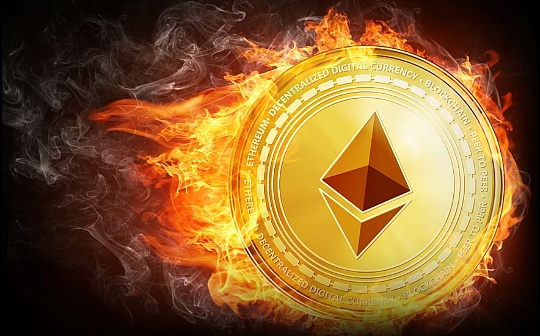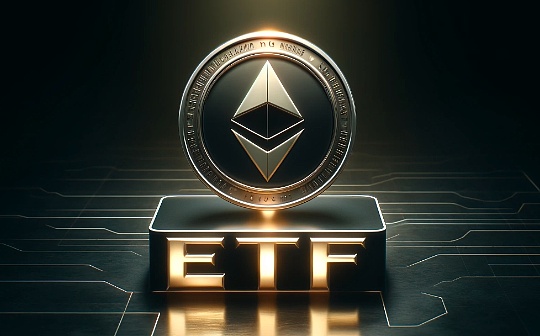
Author: Dr. Paul Dylan-Ennis, a lecturer/assistant professor at the University of Dublin University of Business School, CoinDesk; compiled: five baht
When is the discussion about the launch of the pledged reward in Ethereum exceeds its itself?When it really involves Ethereum governance and Ethereum monetary policy.
The long words about the issuance of the distribution (and why everyone feels angry about it) as follows: According to the current trajectory, you can imagine that all ETH will eventually be pledged, whether it is directly pledged or pledged through again.At present, almost 27% of ETH is pledged.
Starting from a post on the Ethereum Research Forum in February, the Ethereum protocol developers and researchers have begun to discuss how to solve the best problem. The key changes are concentrated on the new distribution reward mechanism.A little pledge is no longer attractive.
Excited things!In addition, the response on social media often pay less attention to the technical details of the proposal, and more attention to the idea that it involves changing the Ethereum monetary policy.in other words,What is really threatened is not distribution, but people feel that “core developers” (a bit of vague term in Ethereum), especially those related to the Ethereum Foundation, have not participated in more extensive interests at the appropriate level.Related “rough consensus”.
Critics are often Ethereum related to “super good currency” subculture. They hope to establish ETH as a sound currency (similar to people think Bitcoin is a sound currency).For them, changing the issuance trajectory is a red line, because it is reminiscent of the central bank’s president to constantly adjust the monetary policy.
Who are these wider stakeholders?In my opinion,The Ethereum ecosystem includes daily users, node operators, verifications/pledges, Ichi Ethereum media and podcasts, and DAPP builders.In at least two media articles recently, these stakeholders are called communities, and the community is either “armed” or opposed to the proposal.
certainly,Core developers are part of the community, but it is also obvious that compared to other stakeholders, they have a huge influence on the agreement.In addition, we really discuss various researchers paid by the Ethereum Foundation.—— Because the Ethereum Foundation is one of the few organizations that make people focus on agreement research.
Now, this is where the slight difference is very important.Especially because we live in an era of actual conspiracy theory of the Ethereum Foundation, such as the absurd world of “ETHGATE”.As a researcher in Ethereum, my point is that EF does not “control” Ethereum.It is also worth mentioning that the Ethereum Foundation is undergoing a process called subtraction, and it will gradually eliminate.In fact, a large number of core developers are completely independent of the Ethereum Foundation, especially when we include the autonomous software client team.
Maybe it’s time to consider the community feedback mechanism.
However, I also know that although the critics have exaggerated the influence of the foundation, the defender also underestimated its influence.We know that only 10 people are responsible for 68%of all Ethereum improvement proposals (EIP).The logistics work of the Allcorevs Conference is mainly responsible for the Ethereum Foundation.Therefore, it is not difficult to understand why some people mistake EF to dominate everything.
I think this is indeed a communication issue.
As Beiko pointed out, Casper and ANSGAR, the two authors of the Ethereum Foundation, suggested to reduce ETH distribution speed to spread their information, including appearing on Uncommon Core podcasts.Unfortunately, people tend to pay attention to X, as if it is a medium discussed in Ethereum governance.
Interestingly, when responding to HASU’s post, Ansgar pointed out that they could have done better, but he believed that this strong opposition was a sign of the strong decentralized operation of Ethereum.This is true!The community does have its own sound and ability to fight against research that it does not like (at least in the current form).
So how to eliminate the idea of Ethereum governance as the Ethereum Foundation?One path is that Layer 2 we see starting to participate in governance is more closely, just like Layer 2 RollCall attempts to create common standards.Or the DAPP builder lobby EIP.
These stakeholders understand that Ethereum governance is open to anyone in principle.Nothing can stop you from writing your own research at the Ethereum Magic Magic Forum and the Ethereum Research Forum.Nothing can stop you from supporting your EIP.Or attend the Allcorevs conference.
Another ignored angle is the importance of independent observation through professional podcasts.The Infinite Jungle of Sassal’s The Daily Gwei and Christine Kim has closely focused on the governance of the agreement. In my opinion, they are important independent advocates.The recent perfect example was ETHDENVER’s Christine Kim asked PRYSM developers why he did not pay more attention to the experience of users and developers.
From a larger perspective,Maybe it’s time to consider the community feedback mechanism.I have previously proposed the annual Ethereum conference (around ETHCC), and the broader Ethereum ecosystems can express their concerns about any EIP.But people tend to think that this may be a centralized force, so maybe this is not possible.
Or, exploreOnline feedback mechanismThe idea may be interesting.Perhaps one month every year, others can publish their concerns or problems with new research directions, hard forks, roadmaps, etc. The core developers can review it as a sound inspection.I think this will solve some problems that will not disappear.
Finally, without such a feedback mechanism, Ethereum’s “social layer” is limited to X. This is a confrontation platform, often encouraging us to do the worst behavior.








